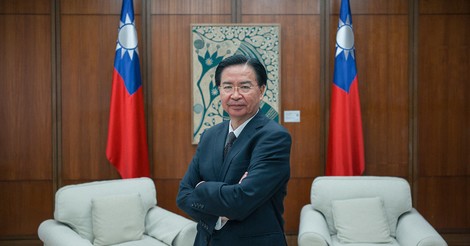Your podcast discovery platform
Curious minds select the most fascinating podcasts from around the world. Discover hand-piqd audio recommendations on your favorite topics.

piqer for: Climate and Environment Globalization and politics Health and Sanity
Mona Silavi is a human and women’s rights activist from the Ahwaz region in Iran. She obtained her bachelor in psychology and specialized in children and adolescence psychology at Damascus University, faculty of psychology and education. She holds a master degree in good governance and human rights in MENA region from Ca’ Foscari University in Venice. She started her activism in Damascus as member of Ahwazi Arab student association. Mona Silavi is a Project Officer at the Unrepresented Nations and Peoples Organization (UNPO) and is the coordinator for topics concerning freedom of religion and belief. She is also a spokesperson of the Al-Ahwaz Democratic Solidarity Party (DSPA). Since 2014 Ms Silavi lives in Belgium as a political refugee
All Hope Lost For An Independent State Of Taiwan
As an advocator for the right to self-determination, Taiwan is an interesting case that shows how people's decisions mean nothing in the light of international powers.
On 22 Sep 2018, activists took advantage of the convening of the UN General Assembly to march from the Chinese consulate in New York to the UN Plaza to push for Taiwan’s international recognition as an independent nation. Over the last two years, Beijing has increased pressure on Taipei to follow its “One China” policy, preventing Taiwanese representation at international summits as well as continuing to block its inclusion as a UN member. Meanwhile, Taiwan’s government sent two ministers as observers to the UN General Assembly, where it aims to promote its involvement in human rights and sustainable development.
Up to 1991, the Government of Taiwan was claiming to represent all of China, but later they renounced this claim stating that instead, it represents the people of Taiwan.
Chiang was determined to retake China. His unwillingness to accept a two-state solution — in which Mao’s People’s Republic of China would receive the Security Council seat, while his government stayed in the U.N. as Taiwan or Formosa (another name for the island) — culminated in U.N. Resolution 2758, which in 1971 transferred the seat from Chiang’s government to Mao’s.
The People’s Republic of China (PRC), claims that Taiwan is part of its territory and recently passed a law that gives the Chinese government the “right” to use force against Taiwan whenever it sees fit.
China uses its power to block any relationships between Taiwan and other countries, and on 21 Aug 2018, El Salvador has become the latest country to withdraw diplomatic relations with Taiwan. This is done via promises of extensive infrastructural projects and aid programs that eventually indebt the countries, as the People’s Republic of China also looks to expand its influence beyond a regional setting.
